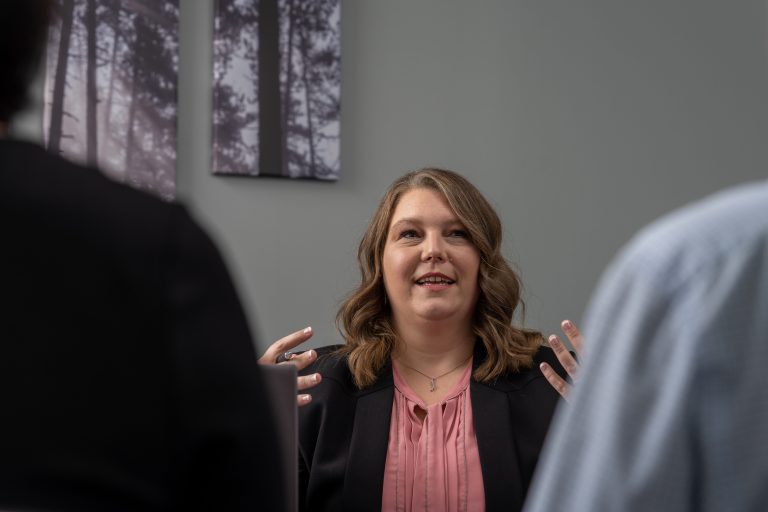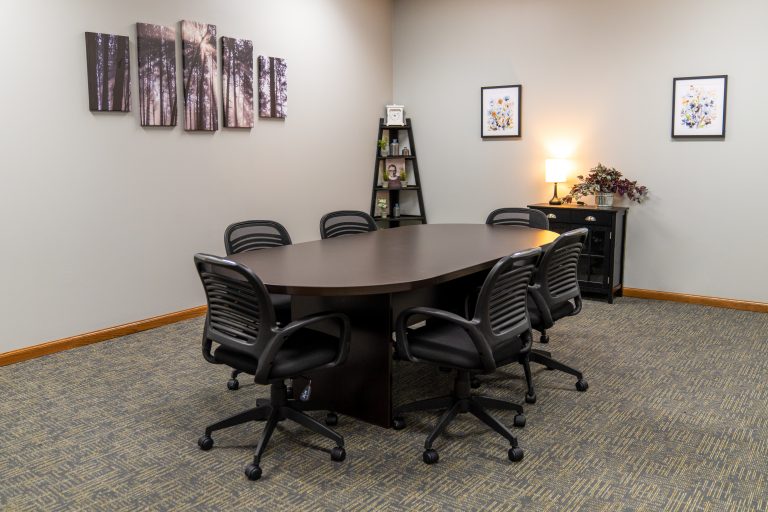Mediation
We mediate cases filed in Riley, Geary, Pottawatomie, Morris, Clay, Wabaunsee, Dickinson, and Marion Counties
Services for cases outside of these counties may be available upon request. Additionally, if parties are not able to attend mediation in person, then mediation by electronic means is available.
Mediation is an alternative dispute resolution process wherein the parties to a dispute meet with a mediator to work towards reaching a resolution to their dispute. Mediation can occur in just about every type of case, including but not limited to, divorce, paternity, child support, custody and parenting time, division of property, criminal, civil, and landlord/tenant disputes.
A mediator is a neutral third party, which means the mediator does not make decisions or advocate for the position of either party. Often the parties have attorneys and they attorneys may or may not participate in mediation. Mediation is a confidential process. This means that the mediator will not share what occurred in mediation with anyone other than the parties and their attorneys. The mediator cannot and will not testify in court. The mediator is only allowed to report information about what occurs in mediation if the mediator suspects that child abuse has occurred or learns of information indicating a person is in imminent danger and a report is necessary to prevent injury or harm.


Mediation FAQs
There is no way we will reach an agreement, why mediate?
You may be surprised. I have witnessed situations, both as a mediator and as an attorney, where I began the mediation thinking an agreement was not possible only to be pleasantly surprised when an agreement was reached. Even if all issues are not resolved, you may be able to reach an agreement on some issues, which may save you money and time when the case does go to court. Additionally, each party learns more about the other party’s position in mediation, which can be useful to the parties and their attorneys if the case does proceed to trial.
Is mediation required?
It depends. In the 21st Judicial District, which consists of Riley and Clay Counties, Local Rule 2.04 requires mediation in domestic cases involving contested child custody or parenting time issues. In other judicial districts judges frequently order parties to attend mediation.
What are the requirements to become a state-approved mediator in Kansas?
A state-approved mediator must complete 16 hours of approved core mediation training. There are additional training requirements for domestic, parent-adolescent, general civil, and juvenile dependency mediation. In addition to the 16 hours of core mediation training, a domestic mediator must complete 24 hours of approved domestic mediation training. After training, the mediator must complete a practicum with a mentor mediator and then submit an application for approval including two letters of recommendation, documentation of training, a verified statement regarding the applicant’s criminal history, and a verified statement that the applicant agrees to comply with Kansas Supreme Court Rules. The mediator must complete six hours of Continuing Dispute Resolution Education (CDRE) each year to remain an approved mediator. Kansas Supreme Court Rules regarding Dispute Resolution may be found here: https://www.kscourts.org/Rules-Orders/Rules.aspx
